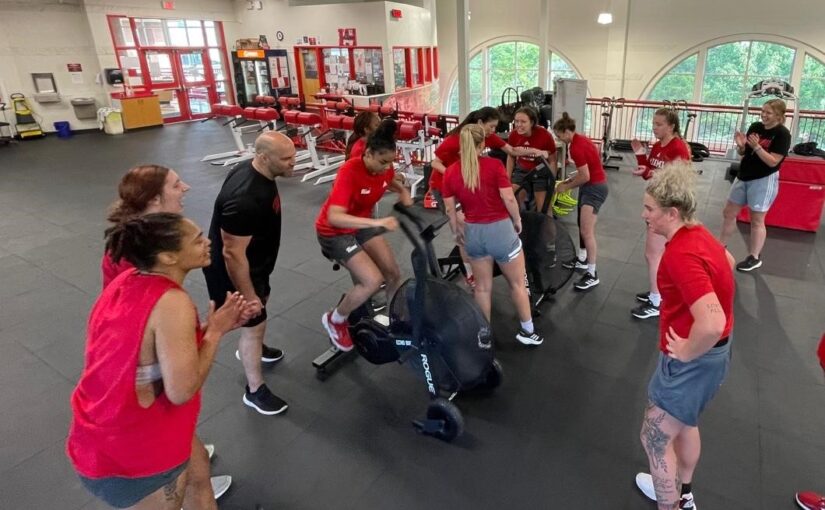A Coach’s Influence: Using undistracted time with athletes
Coaching in the 21st century has its challenges. On an almost daily basis, articles are published about a coach who is worn out by the pressure of winning or beaten up by complaints about playing time. Despite the pressures that assail coaches, these leaders must keep this in the forefront of their minds: In today’s society, they’re the most influential person in the lives of young athletes. This is largely due to the fact that coaches are the last people who get to interact with teenagers uninterrupted by technology.
 Technology is a major part of children’s lives, and that’s not going to change. It makes parenting a challenge, and teachers are forced to use technology in the classroom. Even pastors are preaching to congregations distracted by smartphones and tablets. Coaches are among the only humans left who get teenagers each day for two hours of technology-free interaction. As such, this presents coaches with an unbelievable opportunity to capture the hearts and minds of their players in a way that no other adult can.
Technology is a major part of children’s lives, and that’s not going to change. It makes parenting a challenge, and teachers are forced to use technology in the classroom. Even pastors are preaching to congregations distracted by smartphones and tablets. Coaches are among the only humans left who get teenagers each day for two hours of technology-free interaction. As such, this presents coaches with an unbelievable opportunity to capture the hearts and minds of their players in a way that no other adult can.
I see this firsthand. Delaware County Christian School is a liberal arts, private school in suburban Philadelphia. Like most high school coaches, I conduct our practices after school and insist that the athletes leave their phones, laptops and tablets in their gym bags or lockers room.
I’m not so different from my athletes. I have an iPhone, iPad, Apple watch and MacBook. I’m a bona fide geek when it comes to things that blink and hold a charge. As a young person, I had plenty of people speaking to me. The son of a Baptist pastor, I grew up in a loving, two-parent home, attended a private school, and was part of a youth group where a pastor tried to teach me how to live. However, it was my basketball coach who changed my life.
My college coach reached beyond my limited attention span to teach me about the benefits of exhibiting humility, discipline, commitment, hard work and character. This man realized the power of influence that he possessed and used it to impact dozens of young men over 15 years. Not surprisingly, many of the young men that played under his influence serve today as high school coaches, athletic directors, heads of school and in various other high-level leadership capacities.
As an athletic director, this part of my past drives me to help coaches understand what’s possible through sports. Coaches have what kids want: playing time. Coaches have a unique position that parents, teachers and youth workers strive to have: The undivided attention of young people, devoid of technology’s powerful grip.
All coaches have a responsibility to help their athletes work hard, learn the game and develop team skills that can help teams succeed and athletes achieve their personal best. These same goals can be used to inspire young people to understand that, at some point, sports end. For most, the game ends after high school graduation; for some special athletes, they may earn the opportunity to play in college.
Of significance is that today’s coach has the privilege of helping young people develop skills that last beyond the scope of their careers. The game can give back if the coach uses the opportunity to teach to both the short term and the long term.
Hardly anyone would contest that young people today are distracted. According to a 2017 CNN survey, almost half of all children in the U.S. obtain their first cell phone by age 12. These phones go everywhere with kids — except practices and games. Coaches should take advantage of this time with their players, ensuring that in addition to drills and skills, they are teaching young athletes the benefits of hard work, discipline and humility — qualities that serve them for a life in and beyond sports. Legendary UCLA coach John Wooden once said, “A good coach can change a game; a great coach can change a life.”
Every coach has the opportunity to impact the next generation of leaders through the way they lead. In today’s complex society, athletic directors and coaches must not lose sight of the long-lasting impact that’s possible through coaching excellence. Coaches need to use technology to their benefit in terms of data, video tools and communication, but the need to recognize and use the undistracted facetime with teenagers is their most important asset.
Mike Walker is the athletic director and boys basketball coach at Delaware County Christian School in Newtown Square, Pennsylvania.





